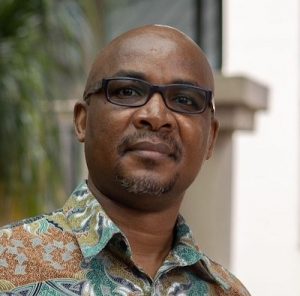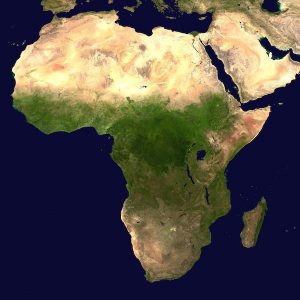 By Jacob Mati, Deputy Director of the Centre on African Philanthropy and Social Investment (CAPSI) and Associate Professor at Wits Business School, in Johannesburg, South Africa.
By Jacob Mati, Deputy Director of the Centre on African Philanthropy and Social Investment (CAPSI) and Associate Professor at Wits Business School, in Johannesburg, South Africa.
Priorities in philanthropy in Sub-Saharan Africa
Across Sub-Saharan Africa, many governments have a selective embrace of philanthropy. When, for instance, in the face of a humanitarian crisis, philanthropy is embraced. However, whenever, let’s say, a social movement calls for fundamental changes or an overhaul of structural issues causing inequality, then almost every single African government that I know of has been very uneasy about philanthropy.
 The continent is also guided, to a large extent, by Agenda 2063: The Africa We Want, which is part of the African Union’s broader policy frameworks, in addition to regional frameworks, such as the Southern African Development Community (SADC), that inform how countries behave regarding philanthropy.
The continent is also guided, to a large extent, by Agenda 2063: The Africa We Want, which is part of the African Union’s broader policy frameworks, in addition to regional frameworks, such as the Southern African Development Community (SADC), that inform how countries behave regarding philanthropy.
Some countries, like Rwanda, have done quite a bit in terms of policies that try to structure philanthropic interventions. Philanthropy institutions have a lot of interest in in Rwanda. The Mastercard Foundation is a huge presence, and there are many other foundations.
There’s a lot of duplication in philanthropy and, therefore, there’s a need to have a policy that guides operations and the need to have a specific ministry through which organizations can engage. One way of avoiding duplication and chaos is to say, “These are our national development priorities,” or to say, “These are the SDGs,” as opposed to organizations choosing what they want. In this regard, Rwanda is probably more advanced than most other countries in terms of policies that structure philanthropy.
In addition, nearly every single African country has been able to prioritize philanthropy’s interventions around sectors like health and education. Here, in South Africa, there’s also a huge focus on job creation, especially for young people.
Laws related to philanthropy that do and don’t operate

Communities in various African countries stand to benefit in one form or another if policies or tax laws guide philanthropy.
On the whole, from a policy perspective, perhaps the most important element related to philanthropy is the tax law in each country. A second element is the relationship between government and the nonprofit sector broadly. Some countries have tried to create an enabling environment, and that “enabling environment” helps governments to respond to immediate or social development needs and brings value in terms of taxes. In other words, governments want something positive coming out of philanthropy.
In some cases, tax laws indicate that organizations can benefit in terms of tax rebates or exemptions related to what they’re trying to do. However, in many countries, tax laws are complicated and don’t fully operate, either because of the bureaucracy or the type of documentation required. Ethiopia is an extreme example of too much regulation, which, for example, dictated that some organizations can’t operate in certain sectors. A backlash ensued, because the philanthropic work and resource mobilization of organizations was overly constrained.
Also, I was talking to someone who operates a community-based organization in Zimbabwe, and she said her organization was hit by a sudden, retroactive, tax demand going back five years – and she thinks it was punishment for asking important questions about the relationship between mining companies, governments and communities. So, many philanthropic organizations in the region operate without applying for tax benefits.
Three exceptions are Kenya, Mauritius and South Africa, which have better developed tax exemption systems for nonprofits and philanthropic organizations, among other regulations. For instance, instead of relying only on the goodwill of mining companies to work with community nonprofit groups, South Africa has specific laws that require companies listed on the Johannesburg Stock Exchange to invest at least 1% of post-tax profit into corporate social investment (CSI). It’s 2% in Mauritius.
More countries may want to do this, if these examples are anything to go by. There’s a huge component of private-sector input, but also nonprofit organizations’ input in terms of processes. It ensures that certain investments go to communities, especially in places with huge extractive industries, such as the Democratic Republic of the Congo (DRC), which has nothing to show after years of mining. Communities in various countries stand to benefit in one form or another if policies or tax laws guide philanthropy.
Read another story about philanthropy in Africa
Sunday, July 21, 2024 in Africa Philanthropy Series, For homepage, News & Events
Share: Twitter, Facebook



